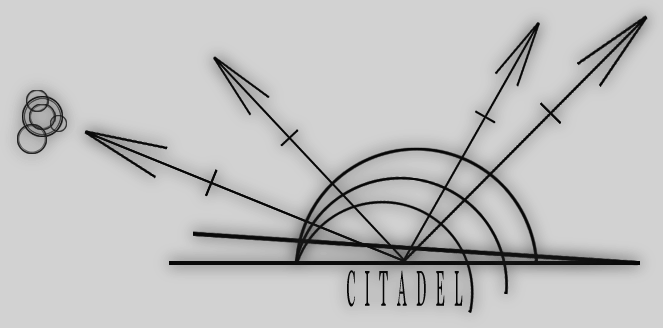Are you a Textmode Browser? Go here!

|
||
[ Navigation ]General:
About me. Documentation:
Design. Downloads: |
[ Welcome! ]A quick Introduction...Welcome to the Citadel Homepage, here you can find all kinds of Downloads and Information related to the Citadel Project. Alrighty, so just what is Citadel?
Citadel is a Microkernel in developement, designed to be fast, reliable, heavily customizable and compatible with today and tommorow's 32bit x86-compatible Processors.
Microkernel? Reliability? Customizability?
All Operating Systems have a heart and that heart, dear reader, is called a Kernel.
Up until fairly recently, Desktop OSes have utilized Monolithic kernels (or variants) which house as many drivers as possible within the Kernel's codebase, or allow you to 'insert' Modules which automatically link into the Kernel during insertion. While these Kernels have been successful, they often crash (In Windows case) due to badly programmed Drivers. Why? Well, since the drivers are either directly in the Kernel's codebase, or inserted into the Kernel's code on-startup, mistakes that would have once just been annoying become fatal, since a Memory-related bug could end up overwriting important chunks of data or even the Operating System itself causing a painful system crash.
Ok, Im almost convinced. You mentioned Speed?Technically, a Microkernel will be slower than a identically featured Monolithic kernel. But then, that Monolithic Kernel would only have Memory Management, Process scheduling and Interrupt Handling. The theoretical speed gains from a Microkernel again, comes down to the fact that only essential components are included in the Kernel code, resulting in a tight, closely integrated system core. If you need extra speed and dont need Networking, Sound or whatever else - you can just terminate the Servers(Drivers) providing those features, giving you a few more clock cycles to spend elsewhere. But hey, like I said, the speed gain is theoretical ;) [ Want extra information? ]
Several websites contain information about the different types of Kernels commonly used in today's operating systems. If you are interested in the specifics, Wikipedia has some very good
articles concerning them. Just do a search on Monolithic / Micro / Modular Kernels and you are sure to find something!. Google is also useful. |
Hosting provided by ASM Hackers.net
|